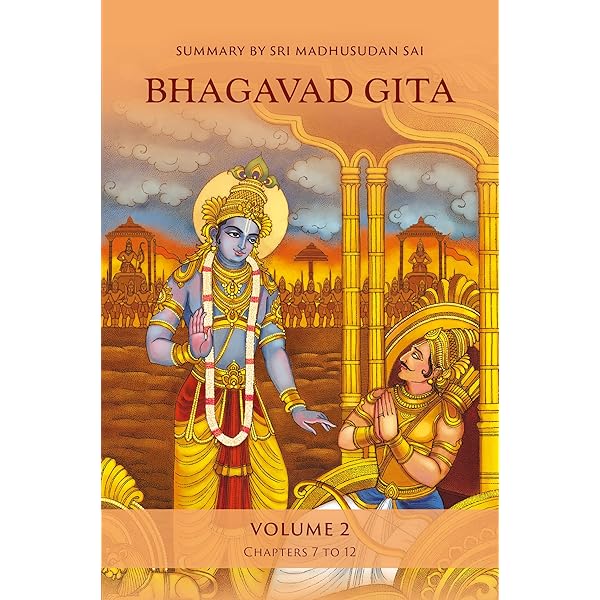Chapter VII — The Bhagavad-Gita
byChapter VII opens a new layer of spiritual instruction, where Krishna invites Arjuna into a deeper understanding of divine truth, not through ritual but through unwavering devotion. He urges Arjuna to focus his mind entirely on Him, promising that such concentration will lead to profound union with the eternal. This promise isn’t abstract; it is grounded in lived experience, where devotion opens the gateway to complete knowledge and insight. Krishna assures Arjuna that when the heart and mind are harmonized with the Divine, the seeker no longer remains in confusion about the world’s nature or his own identity. The knowledge revealed is not just intellectual—it is transformative, leading to inner clarity and release from doubt. With this, the chapter signals a turning point where faith becomes both the path and the outcome.
Krishna explains that few in the world truly seek Him, and even fewer succeed in knowing Him as He truly is. Among thousands of people, many chase knowledge or happiness, but only a rare soul reaches the heart of spiritual truth. He emphasizes this rarity to highlight the value of sincere seeking. Most people are caught in surface-level pursuits, unaware that the source of their longing is divine connection. Krishna identifies Himself as the origin of all existence—everything that lives or moves arises from His dual nature. On one hand is the material energy that creates the visible world; on the other is His higher, living energy that gives consciousness and movement to all life. Both are part of Him, yet He remains beyond both, untouched and ever-present.
Everything that sustains the world—light, strength, clarity, and compassion—comes from Krishna’s essence. He is not just in spiritual spaces but in every drop of water, every ray of the sun, and every word spoken with truth. The essence of reality flows from Him, and even when unseen, His presence supports all. However, Krishna reminds Arjuna that this divine presence is not easily noticed. The illusion created by nature’s qualities—goodness, passion, and ignorance—keeps people blind to the eternal. This veil hides the truth and makes people identify with what is temporary. As long as one stays immersed in external distractions, the true source remains out of reach.
Krishna describes four kinds of people who turn to Him: those in pain, those seeking knowledge, those who want worldly gain, and the wise. Each comes with a different motive, but all are welcomed. He recognizes that people turn to the Divine in many ways, and even those driven by need or desire are on a path that can lead to understanding. Yet, the one who knows Krishna as the ultimate truth—the wise devotee who seeks no reward—is most cherished. This devotee loves Krishna for who He is, not for what He gives. Their connection is not based on outcomes but on pure knowledge and inner peace. In them, Krishna is fully reflected, and their lives become examples of what devotion can achieve.
Though many worship other gods or follow various spiritual paths, Krishna explains that all forms of sincere worship ultimately reach Him. He is the giver behind every prayer and the power behind every blessing. People may think they are reaching different destinations, but their devotion is guided by the same divine source. However, those who worship with lesser understanding receive only temporary rewards—joys of the world that pass away. These pleasures, while granted, do not offer lasting peace or truth. Only those who turn directly to the highest understanding find something that cannot be lost. That is the gift of knowing Krishna—not as an idea, but as the living force behind all things.
The chapter closes with a call to rise above the dualities that trap the human mind—pleasure and pain, success and failure, gain and loss. These opposites keep the soul bound to endless cycles, preventing lasting happiness. But Krishna offers a way out: through steady action, spiritual discipline, and devotion, one can go beyond these shifts and rest in the eternal. When the heart stops reacting to every change and instead holds to truth, freedom begins. Those who surrender to Krishna, not just in words but in being, come to understand the secrets of life and creation. This is not theory; it is a lived truth, available to those who open themselves in humility and faith. Through this path, one discovers that liberation is not found by escaping the world—but by seeing the Divine in everything and offering all to that sacred source.

